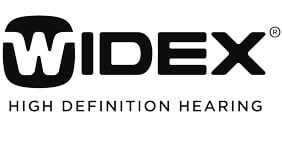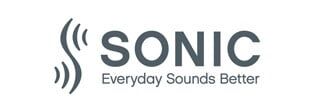Hearing Aids 101
Wide Variety of Digital Hearing Aids
Digital hearing aids are the most advanced form of hearing aid technology on the market. Digital hearing aids give the user control over sound quality and sound processing characteristics. Please see the different types of hearing aids we offer below. If you have any questions, don't hesitate to call us in York at 207-703-0415 or Waterboro
207-247-6328
RIC BTE (Receiver in Canal - Behind-the-Ear)
The receiver in canal behind-the-ear hearing aids features an open fitting that does not require an earmold but instead uses a live speaker that fits in the ear canal. RIC fittings are lightweight, small, more comfortable for the user, and will fit a broader range of hearing losses. Because of the versatile range of the domes, there is less moisture build-up and allows for a more comfortable fit.
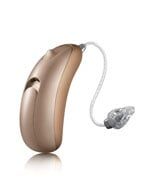
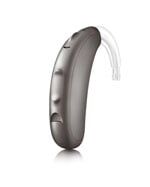
BTE (Behind-the-Ear)
Behind-the-ear hearing aids are a more conventional option that people perceive about hearing aids, but because of the power and circuit settings that are available, sometimes it is necessary. A BTE hearing aid sits on the back of your ear with custom-made earmolds wrapping around to fit comfortably in your ear. For individuals with dexterity issues but not severe hearing loss, BTE hearing aids are now available with a slimmer, more comfortable option that includes an invisible slender tube instead of the current thicker plastic tubing.
ITE (In-the-Ear)
In-the-ear hearing aids are more prominent, easier to handle, and adjust volume or programs than most of the smaller custom-made hearing aids. Another benefit is the size of the hearing aid will allow for a larger battery which will last longer and is easier to insert and remove.
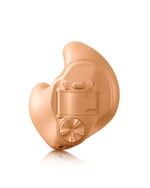
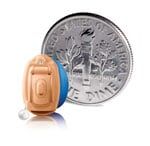
ITC (In-the-Canal)
In-the-canal hearing aids are slightly less visible than ITEs. They require more dexterity to control the volume wheels and other controls on the faceplate.
CIC (Completely-in-Canal)
Completely-in-the-canal hearing aids are small, discreet and cosmetically-appealing. They are custom made to fit deeper in your ear canal and require a removal string to pull the small device out. Because of their size, CICs can only fit mild to moderate hearing losses, they are not available with manual controls but can use a remote device to change volume or programs. Due to their size, the battery is much smaller and can be more difficult to handle.
IIC (Invisible-in-Canal)
Invisible-in-the-canal hearing aids fit deep in the ear and are virtually invisible and use a removal string to remove it. The fitting range is mild to mild-moderate and is an excellent aid for a first-time wearer that needs some help but is not ready for the more robust aids.
The Truth about Hearing Aids
How Hearing Aids Work
Hearing aids are made up of small microphones used collect sounds, a computer chip that converts incoming sound. The computer chip can analyze sound and adjust the volume based on your hearing loss. Depending on the severity of your hearing loss and the environments you function in will determine the level of technology you will need.
Hearing Evaluation
The first step one of our highly-trained Hearing Professionals will ask you questions regarding the onset of your hearing loss, creating a case history. Next a look into the ear canal to check for obstructions or visible irritations, once it is determined there are no issues the actual hearing test will begin.
Upon completion of the hearing test, your answers will help our hearing experts determine if a referral to a medical doctor is necessary for further examination and possible treatment. If the testing reveals no medical issues, a hearing aid may be advised for one or both ears.
Choosing the Right Hearing Aid for You
Hearing Essentials offers hearing aids from all manufacturers so that they can find the right aid for your needs. Our expert staff will use the information provided in the case history and the evaluation to help you pick the best hearing aid for your lifestyle. Our hearing expert can fit, adjust and program your hearing aids, to ensure you get the best hearing available.
Hearing Aid Fitting
During the hearing aid fitting, the device will be programmed to meet the needs of the wearer. The new wearer is provided with instructions that explain how to insert and remove your hearing aids, change batteries, and clean the device. This is also the time that the professional reiterates the function of the hearing aid as it relates to the individual's lifestyle.
Getting Used to Hearing Aids
It could take several days to adjust to your new hearing aids. For most people, it takes a few weeks, but some individuals require several months to adjust. A good rule of thumb is when you have had a significant amount of hearing loss, presenting for an extended period, the longer the transition can be to the use of hearing aids. No two individuals adapt the same when it comes to hearing aids, so don't be alarmed if the adjustment does not happen immediately. The best advice is BE POSITIVE. The more positive you are, the faster you adapt to the changes.
Realistic Expectations
Hearing aids work exceptionally well when they are fitted and adjusted appropriately. All hearing aids should be comfortable concerning the level of sound and physical fit. If any discomfort is present, you should return to your hearing professional to have your hearing aids adjusted. Hearing aids can drastically improve hearing, but will not provide perfect hearing.
Background Noise
Whether you are a hearing aid user or a non-hearing aid user, you will experience background noise at one time or another. Hearing aids cannot eliminate sounds that you do not want to hear, but there are now hearing aids that can amplify sounds you want to hear and depreciate some unwanted sounds. Your hearing professional can recommend hearing aids that can minimize unwanted sounds and find the best circuits and microphone settings for your hearing loss, benefiting your communication needs.
Questions to Ask Before You Buy
Other Questions to Ask Your Hearing Professional:
- Can the hearing professional make adjustments and provide servicing and minor repairs?
- Do the benefits of newer technologies outweigh the higher costs?
- Does the warranty cover future maintenance and repairs?
- How do I know when to have my hearing tested?
- How long is the warranty?
- Is there a trial period to test the hearing aids? (Most manufacturers allow a 30-to 60-day trial period during which aids can be returned for a refund.)
- What features would be most useful to me?
- What fees are nonrefundable if the aids are returned after the trial period?
- What instruction does the hearing professional provide?
- What is the total cost of the hearing aid?
- What service do they provide after the sale?
- Will loaner aids be provided when repairs are needed?


